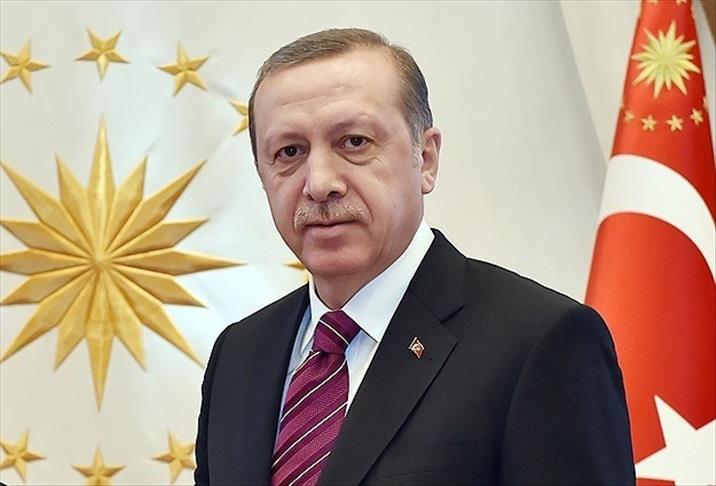Erdogan condemns Pope's remarks over 1915 events
'I would like to warn the honorable Pope not to make such a mistake again,' says Turkish President

ANKARA
Turkish President Recep Tayyip Erdogan has condemned remarks made by Pope Francis over the 1915 events.
Addressing a committee of Turkish Exporters Assembly in the Turkish capital of Ankara on Tuesday, he said he was upset by the Pope's description of the 1915 events being "genocide".
"I would like to warn the honorable Pope not to make such a mistake again," he said.
Pope Francis said on Sunday that “the first genocide of the 20th century” had struck Armenians.
His statement led Turkey to recall its ambassador to the Vatican and also to summon the Vatican's envoy in Ankara.
Recalling the Pope's visit to Turkey in November 2014, Erdogan said his remarks had been very different at the time.
"Now, after his remarks, I have different opinions about him both as a politician and a religious man," he said.
'No advantage'
Erdogan said it was the job of historians to reveal the facts about the 1915 events, saying: "When politicians or religious men intervene in the work of historians, there appears nonsense just like this."
Reiterating that Turkey had always kept its archives available for research into the events, he called for an international joint research commission.
The 1915 events took place during World War I when a portion of the Armenian population living in the Ottoman Empire sided with the invading Russians and revolted against the empire.
The Ottoman Empire relocated Armenians in eastern Anatolia following the revolts and there were Armenian casualties during the relocation process.
Armenia has demanded an apology and compensation, while Turkey has officially refuted Armenian allegations over the incidents saying that, although Armenians died during the relocations, many Turks also lost their lives in attacks carried out by Armenian gangs in Anatolia.
Ankara agrees that there were certainly Armenian casualties during World War I, but says that it is impossible to define these events as “genocide.”
Erdogan said on Tuesday that Turkey also shared the pain of the Armenians and that there were Ottomans as well killed by Armenians or other nations.
"But we are not aiming to take advantage of pain," he said.
'Comfort and peace'
Erdogan also pointed to pain the country recently faced when a PKK terrorist attack left four Turkish troops wounded in Turkey’s eastern Agri province.
On Saturday, Turkish gendarmerie troops -- who were deployed in a village in Diyadin district of Agri to establish security during a village spring festival -- came under attack.
"If it was a provocation, it must have been organized by a political party that is controlled by a terror organization, not by the state," Turkish President said.
He said the incident clearly showed the insincerity of "the political party and the terror organization over the solution process."
The Turkish government has launched an initiative called "solution process" with the aim of bringing an end to the decades-long conflict with the outlawed Kurdistan Workers’ Party, or the PKK, which has so far claimed the lives of more than 40,000 people.
Turkish authorities has repeatedly said so far that the solution process was being carried out with the full support of the Turkish community, and that the government’s main goal in the solution process was to safeguard Turkey’s national unity, brotherhood of its citizens, and comfort and peace in the homeland.
Erdogan said: "If the arms are not completely laid down, then it means that the other side has not kept its promise.
"There is no place in a new Turkey for terrorism and oppression under arms."
Anadolu Agency website contains only a portion of the news stories offered to subscribers in the AA News Broadcasting System (HAS), and in summarized form. Please contact us for subscription options.







